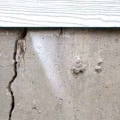When searching for a new home, buyers often prioritize the condition of the property, especially the foundation, which is crucial to the structural integrity of the house. However, some homes on the market come with foundation problems, raising the question: is it worth buying a house with foundation issues? While such a purchase might initially seem daunting, there are various factors to consider that can influence whether or not it’s a good investment. Understanding the scope of the problem, the costs involved in repairs, and the potential long-term implications can help buyers make an informed decision.
Assessing the Severity of Foundation Problems
The first step in determining whether it’s worth buying a house with foundation problems is to assess the severity of the issue. Not all foundation problems are created equal; some may be minor and easily repairable, while others could be more serious and require extensive work. Common signs of foundation issues include cracks in the walls, uneven floors, doors and windows that stick, and gaps around window frames. It’s essential to have a professional inspection conducted by a structural engineer or foundation specialist to determine the extent of the damage. Their assessment will provide valuable insights into the type of repairs needed and the potential costs involved, which are critical factors in deciding whether to proceed with the purchase.
Evaluating the Cost of Repairs
The cost of repairing foundation problems can vary widely depending on the severity and the type of repair needed. Minor issues, such as small cracks, may only require cosmetic fixes or simple reinforcement, which could cost a few thousand dollars. However, more significant problems, such as major settling or shifting, might require underpinning, piering, or other extensive repairs that could run into tens of thousands of dollars. When evaluating whether it’s worth buying a house with foundation problems, it’s crucial to factor in these repair costs and consider how they fit into your overall budget. Additionally, some sellers may be willing to negotiate the price or offer credits toward repairs, making the purchase more financially feasible.
Considering the Long-Term Implications
Foundation problems can have long-term implications that go beyond the initial repair costs. Even after repairs are completed, a house with a history of foundation issues may have a lower resale value, as future buyers might be wary of purchasing a home with a known structural problem. It’s also essential to consider the potential for ongoing maintenance and monitoring to ensure the foundation remains stable. For some buyers, these long-term considerations might outweigh the benefits of purchasing a home with foundation problems, while others may find that the reduced purchase price and the opportunity to customize the repairs to their standards make it a worthwhile investment.
Weighing the Investment Potential
In some cases, buying a house with foundation problems can be a strategic investment opportunity. If the purchase price is significantly lower than comparable homes in the area, and the cost of repairs is manageable, you might be able to realize a considerable return on investment once the repairs are completed. This is particularly true in markets where home values are rising, and the demand for housing is high. However, it’s crucial to carefully weigh the investment potential against the risks and uncertainties involved. Partnering with experienced professionals, such as a trusted contractor or real estate agent, can help you navigate the complexities of buying a house with foundation issues and determine if it aligns with your investment goals.
Understanding the Risks
While there are potential benefits to buying a house with foundation problems, it’s also important to understand the risks involved. Foundation repairs can sometimes uncover additional issues, such as plumbing or drainage problems, that require further attention and expense. There’s also the risk that the repairs might not fully resolve the foundation issues, leading to ongoing problems and costs. Additionally, if the foundation problems are severe, they could pose safety risks or result in significant structural damage over time. Buyers need to be fully informed of these risks and prepared to handle any challenges that may arise during and after the repair process.
Conclusion
In conclusion, whether it’s worth buying a house with foundation problems depends on several factors, including the severity of the issues, the cost of repairs, the long-term implications, and the investment potential. For some buyers, the opportunity to purchase a home at a lower price and make necessary repairs may present a worthwhile investment. However, it’s crucial to approach such a purchase with caution, conducting thorough inspections and considering all potential risks. Working with experienced professionals, such as All County Roofing, who understand the intricacies of home repairs and structural integrity, can provide valuable guidance and ensure that you make an informed decision. Ultimately, the choice to buy a house with foundation problems should align with your financial situation, risk tolerance, and long-term goals.







